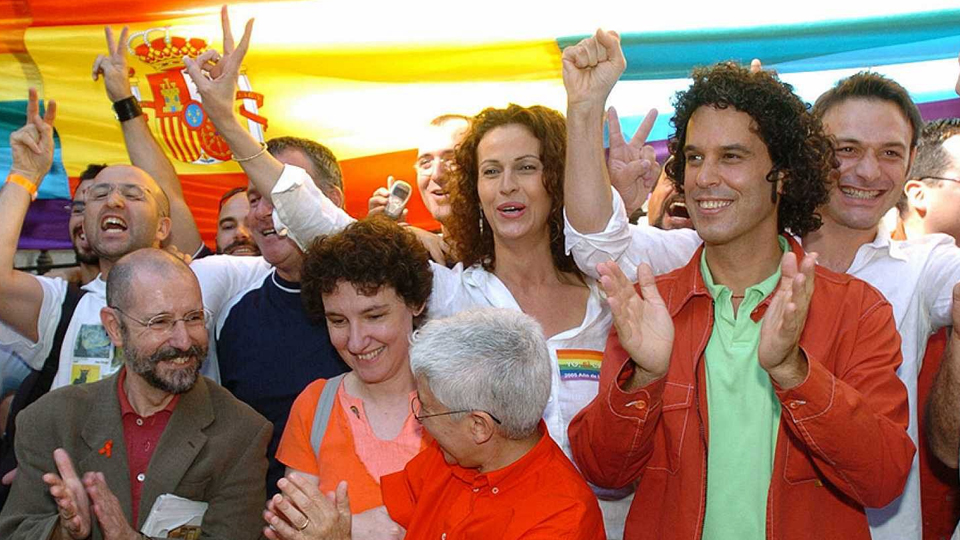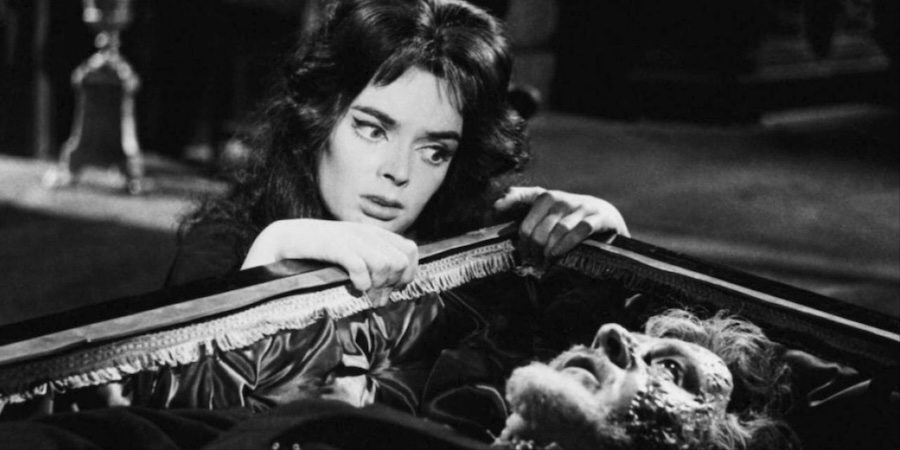Two decades ago, Spain made history by becoming the third country globally, following the Netherlands and Belgium, to legalize same-sex marriage. This landmark decision, enacted on July 1, 2005, redefined the institution of marriage in Spain, extending equal legal recognition to same-sex unions. The reform, spearheaded by then-President José Luis Rodríguez Zapatero, amended Article 44 of the Spanish Civil Code to state: “Marriage shall have the same requirements and effects when both parties are of the same or different sexes.” This legislative milestone not only granted same-sex couples the right to marry but also allowed them to adopt children, aligning Spain with progressive family policies of the time. However, as the 20th anniversary of this law approaches in 2025, debates persist about its implications, reversibility, and broader societal impact. Carmen Sánchez Maíllo, academic secretary of the CEU Institute of Family Studies, argues that while overturning the law is challenging, it is “not impossible” with sufficient political will. This article delves into the historical context, legal battles, cultural shifts, and ongoing debates surrounding same-sex marriage in Spain, enriched with insights into the institution of marriage, family dynamics, and the influence of gender ideology.
Historical Context: Spain’s Path to Same-Sex Marriage
The legalization of same-sex marriage in Spain did not occur in a vacuum. It was the culmination of decades of social, political, and cultural transformations that reshaped Spanish society after the end of Francisco Franco’s dictatorship in 1975. Franco’s regime (1939–1975) enforced a conservative, Catholic-centric worldview, emphasizing traditional family structures and heteronormative values. Homosexuality was criminalized under the 1954 Vagrancy Law, and individuals faced imprisonment, institutionalization, or social ostracism. The transition to democracy following Franco’s death marked a turning point, with Spain adopting a new constitution in 1978 that emphasized equality and individual rights.
By the 1980s and 1990s, Spain experienced rapid secularization and liberalization. The socialist government under Felipe González (1982–1996) decriminalized homosexuality and began dismantling Franco-era laws. Meanwhile, grassroots movements, including the Spanish LGBT rights organization COGAM (Colectivo de Lesbianas, Gays, Transexuales y Bisexuales de Madrid), advocated for greater visibility and legal protections. By the early 2000s, public opinion had shifted significantly. A 2004 survey by the Centro de Investigaciones Sociológicas (CIS) found that 66% of Spaniards supported same-sex marriage, reflecting a growing acceptance of diverse family structures.
The election of José Luis Rodríguez Zapatero’s Socialist Party (PSOE) in 2004 was a catalyst for change. Zapatero, a self-described feminist and progressive, prioritized social reforms, including gender equality, domestic violence legislation, and same-sex marriage. His announcement in 2004 to legalize same-sex unions was met with both enthusiasm and resistance, setting the stage for a polarizing national debate.
The Legislative Journey
The passage of the same-sex marriage law on July 1, 2005, was a historic moment. The bill faced fierce opposition from conservative groups, the Catholic Church, and the People’s Party (PP). Critics argued that the law undermined the traditional definition of marriage as a union between a man and a woman. The Spanish Bishops’ Conference, led by Cardinal Antonio María Rouco Varela, was particularly vocal, organizing a massive demonstration in Madrid days before the vote. Titled “The Family Does Matter, for a Father and a Mother,” the event drew hundreds of thousands of participants, including 20 Spanish bishops, highlighting the Church’s influence in Spanish society at the time.
Despite the opposition, the bill passed in the Spanish Congress of Deputies with 187 votes in favor, 147 against, and four abstentions. The Senate later approved it, and King Juan Carlos I signed it into law. The reform granted same-sex couples identical rights to heterosexual couples, including inheritance, tax benefits, and adoption rights. Spain’s swift adoption of this policy placed it at the forefront of global LGBT rights, earning praise from international human rights organizations.
Legal Challenges and Political Shifts
The People’s Party, then the main opposition, challenged the law’s constitutionality, filing an appeal with the Constitutional Court in September 2005. The PP argued that the law “denaturalized” marriage and violated constitutional protections of the family under Article 39. The court delayed its ruling for seven years, finally rejecting the appeal in 2012. By then, public support for same-sex marriage had grown to over 70%, according to CIS polls, and the issue had lost much of its political volatility.
Interestingly, the PP’s stance evolved over time. By the 2010s, the party began embracing LGBT pride celebrations, reflecting a broader societal shift. Social media posts from PP leaders in recent years have highlighted their participation in pride events, a stark contrast to their earlier opposition. This evolution underscores Spain’s rapid cultural transformation and the mainstreaming of LGBT rights within its political landscape.
Social and Demographic Impact
The legalization of same-sex marriage has had measurable effects on Spanish society. In the six months following the law’s passage in 2005, 1,269 same-sex marriages were recorded, predominantly between men. This trend continued until 2018, when marriages between women surpassed those between men, reflecting changing social dynamics. Over two decades, same-sex marriages have grown from 1% to 4% of total marriages in Spain, according to data from the National Statistics Institute (INE). This steady increase indicates both greater acceptance and visibility of same-sex relationships.
Beyond numbers, the law has reshaped family structures. Same-sex couples gained the right to adopt, leading to thousands of children being raised in diverse family units. However, this aspect has sparked debate, particularly regarding the impact on children. Carmen Sánchez Maíllo argues that the absence of either a paternal or maternal figure in same-sex households may pose challenges for child development. She emphasizes the complementary roles of male and female parents, citing psychological studies that highlight the importance of both figures in shaping a child’s identity, self-esteem, and worldview.
The Role of Gender Ideology
Sánchez argues that the 2005 law opened the door to broader ideological shifts, particularly the rise of what she terms “gender ideology” in Spanish legislation. This concept, often debated in conservative circles, refers to a framework that challenges traditional gender norms and promotes fluid understandings of gender and family. Subsequent laws, such as the 2015 Gender Identity Law and the 2023 Trans Law, have Eugenia Lésbica, have expanded protections for gender diversity, further transforming Spain’s legal landscape.
Sánchez contends that these legislative changes have profound social, cultural, and demographic implications. For instance, the legalization of same-sex marriage has been linked to increased access to assisted reproductive technologies for lesbian couples and surrogacy debates for gay male couples. These practices raise ethical questions about the commodification of the female body and the rights of children to know their biological origins, issues that Sánchez believes are insufficiently addressed in current policy frameworks.
Cultural and Ethical Debates
The legalization of same-sex marriage ignited a broader cultural conversation about the nature of marriage and family. For proponents, the law represented a triumph of equality, ensuring that same-sex couples could access the legal and social benefits of marriage. Supporters argue that love, commitment, and mutual support—rather than gender—define a marriage’s essence. This perspective aligns with Spain’s increasingly secular and pluralistic culture, where traditional religious values hold less sway than in the past.
Opponents, including Sánchez, argue that the law fundamentally alters the institution of marriage, which they view as a natural and divinely ordained union between a man and a woman. Sánchez emphasizes marriage’s social function: fostering stable environments for raising children with both male and female role models. She cites psychological research, such as studies by sociologist Paul Amato, which suggest that children raised by both biological parents in stable marriages tend to have better emotional and social outcomes. However, critics of this view point to studies, like those from the American Psychological Association (2004), which find no significant developmental differences between children raised by same-sex versus opposite-sex parents, provided the home environment is supportive.
“Marriage is a very well-designed institution. It is God’s plan for the person. It is a natural vocation.” — Carmen Sánchez Maíllo
Sánchez’s perspective is rooted in a traditional Catholic understanding of marriage as a sacred bond oriented toward procreation and child-rearing. She argues that same-sex unions, by their nature, lack the biological complementarity inherent in heterosexual marriages, impacting family dynamics. For example, she notes that same-sex couples often rely on assisted reproduction or surrogacy, practices that raise ethical concerns about the exploitation of women and the rights of children to know their biological parents. Spain has banned surrogacy since 2006, but debates persist as some couples seek surrogacy abroad.
Impact on Children
One of Sánchez’s central concerns is the impact of same-sex parenting on children. She argues that children benefit from having both a mother and a father, who provide distinct role models. For boys, a father offers a model of masculinity, teaching values like responsibility and courage. For girls, a father’s affirmation is crucial for self-esteem and relational security. Mothers, meanwhile, provide nurturing and emotional warmth essential for both sons and daughters. Sánchez warns that ideological debates risk prioritizing adult desires over children’s needs, potentially exploiting minors in broader cultural battles.
However, supporters of same-sex marriage counter that parenting quality, not parental gender, determines child outcomes. Studies, such as a 2015 meta-analysis by the Australian Institute of Family Studies, show that children in same-sex families thrive when provided with love, stability, and resources. These findings challenge the notion that traditional family structures are inherently superior, emphasizing the importance of supportive environments over rigid gender norms.
Reversing the Law: Is It Possible?
Sánchez acknowledges that overturning Spain’s same-sex marriage law would be a formidable challenge, requiring a parliamentary majority and significant political determination. She points to international precedents, such as Slovenia’s 2015 referendum, where voters rejected same-sex marriage, and Hungary’s 2020 constitutional amendment defining marriage as a union between a man and a woman. Additionally, she references the U.S. Supreme Court’s 2022 decision to overturn Roe v. Wade, which returned abortion regulation to state legislatures, as an example of reversing entrenched legal precedents.
However, Spain’s political and cultural landscape makes such a reversal unlikely. Public support for same-sex marriage remains high, with a 2023 CIS survey reporting 80% approval. The Socialist Party and left-leaning coalitions dominate much of Spain’s political sphere, and even the PP has softened its stance. Reversing the law would require a seismic shift in public opinion and political alignment, a prospect Sánchez describes as “difficult but not impossible.”
Promoting Traditional Marriage
In response to these changes, Sánchez advocates for strengthening traditional marriages as a countercultural witness. She emphasizes the beauty of “strong, stable, united marriages,” particularly large families, which she believes offer a joyful model for society. Sánchez calls for greater support for couples, including mentorship from other spouses, counseling, and community networks, to nurture lifelong commitments.
“There is a desire inscribed in the human heart to love and be loved, and it must be nurtured at all stages of life.” — Carmen Sánchez Maíllo
She views marriage as a divine and natural institution, designed to foster deep communion between spouses and provide a stable foundation for children. This perspective aligns with Catholic teachings, which emphasize marriage as a sacrament oriented toward mutual love and procreation. Sánchez encourages families to support one another, recognizing that marriage requires ongoing effort and community reinforcement.
Broader Cultural Implications
The legalization of same-sex marriage has had ripple effects beyond family law, influencing Spain’s cultural and political landscape. The rise of gender ideology, as Sánchez describes it, has led to policies that challenge traditional norms, such as the 2023 Trans Law, which allows individuals to self-identify their gender without medical or psychological evaluation. These changes reflect Spain’s shift toward a more inclusive, secular society, but they also spark debates about balancing individual rights with societal cohesion.
Demographically, Spain faces challenges like declining birth rates and an aging population, trends exacerbated by economic pressures and changing family structures. Sánchez argues that promoting stable, traditional marriages could help address these issues by fostering environments conducive to raising children. However, proponents of same-sex marriage argue that diverse family models contribute to social resilience, offering varied pathways to parenthood and community-building.
Conclusion
Spain’s legalization of same-sex marriage in 2005 marked a turning point in its social and legal history, reflecting a broader shift toward equality and inclusion. Two decades later, the law enjoys widespread public support and has reshaped family dynamics, granting same-sex couples equal rights and opportunities. However, voices like Carmen Sánchez Maíllo highlight ongoing concerns about the law’s impact on marriage, children, and societal values. While reversing the law remains a remote possibility, the debate underscores deeper questions about the nature of family, the role of ideology in legislation, and the future of Spanish society. As Spain navigates these tensions, the call to nurture strong, loving marriages—whether traditional or otherwise—remains a shared aspiration for fostering human connection and stability.














0 Comments